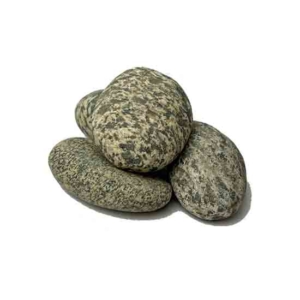Description
Using red stones in landscaping adds a unique blend of functionality, aesthetics, and environmental benefits. Here’s an in-depth look at the advantages of incorporating red stones into your outdoor spaces:
1. Aesthetic Benefits
- Vivid Color: The warm, earthy tones of red stones add vibrancy and character to any landscape, creating a bold and striking visual appeal.
- Contrast: Red stones stand out against greenery, flowers, and other natural elements, making them an eye-catching choice.
- Versatility: Complements rustic, Mediterranean, and desert-style landscapes, as well as contemporary designs.
- Variety: Available in multiple shades and textures, from deep brick red to lighter hues, allowing for creative customization.
2. Low Maintenance
- Durable Material: Red stones resist weathering, maintaining their appearance for years without the need for replacement.
- Easy Cleaning: Can be quickly cleaned with water to remove dirt, debris, or moss.
- Weed Suppression: When combined with landscaping fabric, they effectively reduce weed growth, cutting down on maintenance.
3. Functional Benefits
- Erosion Control: Helps stabilize soil on slopes or uneven terrain, reducing erosion caused by wind or water.
- Drainage Improvement: Promotes water flow and prevents pooling, making them ideal for gardens and pathways.
- Heat Absorption: Absorbs warmth, which can be beneficial in cooler climates, aiding in soil temperature regulation.
4. Versatility in Use
- Pathways and Walkways: Creates a sturdy, non-slip surface for high-traffic areas.
- Borders and Edging: Provides a visually appealing way to define garden beds, patios, and driveways.
- Water Features: Enhances the aesthetic of ponds, fountains, or waterfalls with its rich tones.
- Ground Cover: Acts as a decorative and functional mulch alternative around plants and trees.
5. Environmental Benefits
- Sustainability: Red stones are a natural, eco-friendly material that doesn’t decompose or release chemicals into the soil.
- Longevity: Unlike organic mulch, stones do not need frequent replacement, reducing waste.
6. Cost-Effectiveness
- Long-Lasting: Though the initial investment may be higher, the durability of red stones minimizes long-term costs.
- Reduced Maintenance Costs: Requires minimal upkeep compared to organic materials, saving time and money.
7. Practical Benefits
- Enhanced Safety: Provides a stable, slip-resistant surface for outdoor walkways and patios.
- Wide Size Range: Available in sizes from fine gravel to larger boulders, offering flexibility for different landscaping needs.
- Versatile Climate Adaptation: Performs well in both wet and dry climates, making it a reliable choice for diverse environments.
8. Increased Property Value
- Curb Appeal: Red stones add a polished, professional look to outdoor spaces, boosting the aesthetic value of your property.
- Unique Charm: The bold color and texture of red stones can make your landscape stand out, leaving a lasting impression.
Considerations
- Heat Retention: Red stones may retain more heat than lighter-colored options, which could impact plant health in hot climates.
- Cleaning Needs: Over time, dirt or moss can accumulate, requiring occasional cleaning to maintain their appearance.
- Initial Cost: Higher upfront cost compared to organic mulch, though offset by long-term durability and reduced maintenance.
Conclusion
Red stones are a vibrant, durable, and versatile choice for landscaping. They bring warmth and character to outdoor spaces while offering practical benefits like weed suppression, erosion control, and long-term cost savings. Whether used in pathways, garden beds, or decorative accents, red stones provide a bold, low-maintenance solution for enhancing any landscape.





